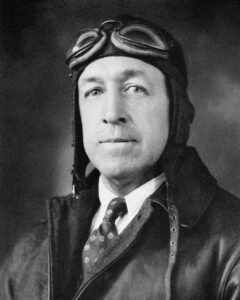 It was a cold December day and mist covered the sky making Captain Wincapaw’s flight more difficult. All he could see was the tips of his’ plane wings. As he carefully descended, he was able to identify in the distance the dim light from the lighthouse near his runway. He had always admired the lighthouse keepers, always faithful to their position, although their nights were long and lonely, they could be counted on for their loyalty to the light.
It was a cold December day and mist covered the sky making Captain Wincapaw’s flight more difficult. All he could see was the tips of his’ plane wings. As he carefully descended, he was able to identify in the distance the dim light from the lighthouse near his runway. He had always admired the lighthouse keepers, always faithful to their position, although their nights were long and lonely, they could be counted on for their loyalty to the light.
The captain was carrying an injured man in his plane. The man was a castaway whose small boat had been thrown against the rocks off the New England coast and whom had been rescue by the lighthouse keeper. Using his lifeboat, the lighthouse keeper had dragged the man from the cold and murky waters in that stormy December. Wincapaw was called and he flew there right away in spite of the forecast. He was a pilot dedicated to rescuing the sick or injured on the coast and he was one of those faithful men who, regardless of the inclement in the weather conditions traveled to rescue different men in urgent need of medical care and transfer them to the nearest hospital.
On those difficult nights when the brightness was dim, he often let himself be guided by the lighthouses down there on the New England coast. He knew that many times the lighthouse keepers instead of being with their families, to celebrate a birthday, a Christmas, or a Thanksgiving Day, they would sit instead down there alone to keep the light shining, the windows clean and their eyes attentive to be a guide to ships or rescue possible castaways.
After landing on December 23, Captain Wincapaw, thinking of the lighthouse keepers, had an idea. When he got home, he decided to go in search of a Santa Claus suit and buy newspapers, magazines, coffee, cookies, sweets and small gifts for the lighthouse keepers on the coast. It was Christmas 1929 when Captain Wincapaw for the first time after saying goodbye to his family on December 25 flew to the different lighthouses along the coast to distribute his gifts. The lighthouse keepers accepted them very gratitud and with the kind of joy that is able to dissipate the mist of those lonely days when the majority wanted to be with their loved ones. It was that Christmas that the captain was baptized with the name of the flying Santa Claus. By 1933, four years later more than 90 gifts packages had been received by the guardians of the light along the coastline.
The story of the flying Santa Claus makes me think about the best of December; the Christmas spirit. It is this that is capable of turning sad days into bright days, empty spaces into full places, days of fights into days of forgiveness, days of loneliness into days full of love, days of indifference into days of gratitude. I know this year is going to be different for many of us. Many will have to spend Christmas alone, other of us during this time will remember those brave people who have left us this year fighting Covid. There is no doubt that this year we have lost a lot, but we have not lost the light. Thinking of the lighthouse keepers of ancient times when the lights were not automatic and depended on men is that I think of what has not been taken away from us this year and that is the opportunity to spread light through our words.
It is my wish that our words can be the light in this season. That if we must cry, let it be of happiness reading the messages of love, we write to each other, and remembering the good times. I also hope that the best of Christmas remain among us; the love of those who remain, of those who left, and the lobe we will give to those who will come.



